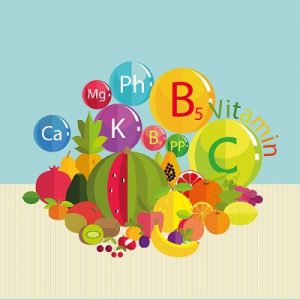 Nutrients refer to those chemical substances obtained from the food that you eat. Your body needs these nutrients to be able to perform many metabolic processes and maintain a healthy internal environment. You are able to breathe, think and perform physical activities because of the nutrients inside your body. The following are the kinds of nutrients that your body needs.
Nutrients refer to those chemical substances obtained from the food that you eat. Your body needs these nutrients to be able to perform many metabolic processes and maintain a healthy internal environment. You are able to breathe, think and perform physical activities because of the nutrients inside your body. The following are the kinds of nutrients that your body needs.
Essential nutrients are important for the overall development, maintenance and growth of the human body. To avoid confusion it is also important to note that the term “essential nutrients” may also refer specifically to amino and fatty acids that the body must have to thrive and survive.
Carbohydrates, fats and proteins are needed by the body in large amounts. Thus, the term “macro” nutrients are used when referring to this group of nutrients.
The following is a list of essential nutrients that everyone needs:
Carbohydrates
Carbohydrates serve as the main source of energy for all types of bodily functions including muscular exertion. Carbohydrates are needed by fats for the latter to be broken down inside the liver. Glucose, the simplest form of carbohydrate is crucial for a lot of processes including brain function. Every gram of carbohydrates is equivalent to 17 kilojoules of energy.
Fats
Fats play a crucial role in the production of new cells. These fats are also important for the proper transmission of all nerve impulses and any other processes involved in brain development. Fats contain the densest amount of calories. When fats are burned or metabolized they are capable of providing the largest amount of energy. Every gram of fats is equal to 37 kilojoules of energy, which is more than twice the amount that protein and carbohydrates can provide.
Although carbohydrates serve as the main source of energy, the body will use fats as its fuel when it has run out of carbohydrates. Another crucial role of fats is to take up those vitamins that are fat-soluble and store them for later use.
Proteins
All the enzymes, antibodies and hormones inside the body are made up of proteins. Proteins are important for the transport of nutrients, waste and oxygen in the entire body. The contracting capability and the structure of the muscles mainly depend on proteins. If the body runs out of carbohydrates and fats for fuel, the body will be left with the last source of energy in the form of stored proteins.
During extreme starvation the muscles which are made up of proteins will be used by the body as its last remaining source of energy. This is a process called muscle wasting. Just like carbohydrates, proteins provide 17 kilojoules of energy per gram.
Vitamins and Minerals
Vitamins and minerals are termed micronutrients due to the fact that they are needed by the body only in minute amounts. Even though they only needed in small amounts they are critical to healthy body and brain function. A prolonged absence of any will result in ill-health and disease.
Vitamins are essential for regulating all the cellular functions in the body. Vitamins can either be fat-soluble or water-soluble. Fat-soluble vitamins are stored in the liver and fat tissues of the body. Water-soluble vitamins cannot be stored easily because unless quickly used they will be expelled during urination. It is therefore essential to eat foods that contain water-soluble vitamins more regularly than foods that contain fat-soluble vitamins.
Minerals are critical for the proper functioning of the entire body. Each mineral has a role to play in order to promote better metabolism, bone health and water balance. Although these minerals are only needed in minute amounts each is vital in every process that takes place inside the body. If mineral balance is not maintained the body is unable to properly utilize any other dietary inputs including the macros and vitamins.
Next is water. Water is absolutely essential to life and in the absence of water none of the foregoing nutrients can be utilized for very long. Even the mildest dehydration can have an adverse impact on how our brain functions. Therefore clean drinking water is our first dietary need.






